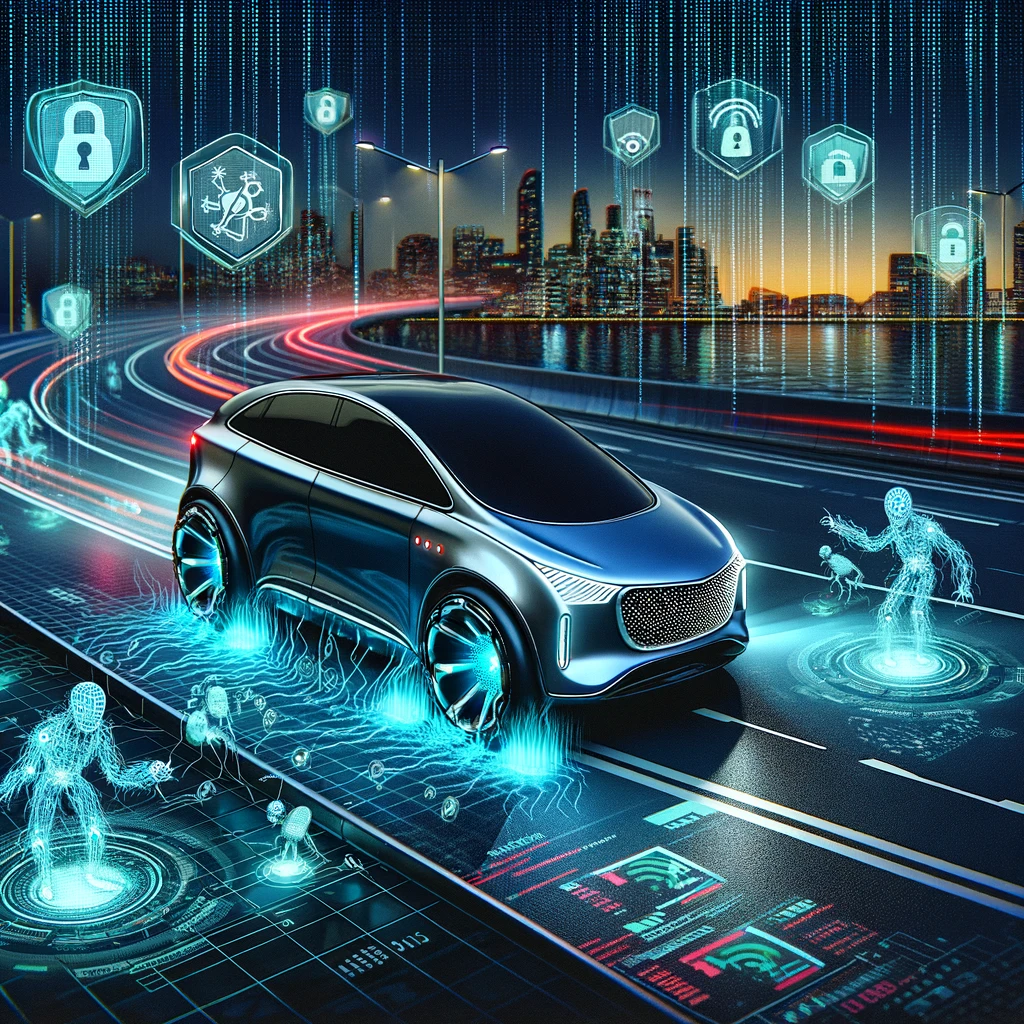
Autonomous Vehicles (AVs) represent a groundbreaking advancement in transportation technology, promising safer roads, reduced congestion, and increased mobility for people around the world. However, as these vehicles become more connected and reliant on complex software and communication systems, cybersecurity considerations become paramount to ensuring their safety and protecting user privacy. In this post, we’ll delve into the cybersecurity considerations for Autonomous Vehicles and discuss strategies for safeguarding both safety and privacy.
- Threat Landscape: Autonomous Vehicles are susceptible to a wide range of cyber threats, including hacking, malware attacks, and data breaches. Hackers could exploit vulnerabilities in vehicle software or communication networks to gain unauthorized access and control over critical functions, posing significant safety risks to passengers and other road users. Additionally, the vast amount of data generated by AVs, including location information, sensor data, and personal preferences, presents lucrative targets for cybercriminals seeking to steal or manipulate sensitive information.
- Safety-Critical Systems: Unlike traditional vehicles, Autonomous Vehicles rely heavily on software-driven systems to perceive and interpret their surroundings, make decisions, and control vehicle operations. Any compromise to these safety-critical systems could have catastrophic consequences, leading to accidents, injuries, or loss of life. Ensuring the integrity and resilience of these systems against cyber threats is essential to maintaining the safety and reliability of Autonomous Vehicles.
- Privacy Concerns: Autonomous vehicles collect a wealth of data about their occupants, including travel patterns, preferences, and biometric information. Protecting this data from unauthorized access, misuse, or exploitation is critical to preserving user privacy and maintaining trust in AV technology. Failure to adequately address privacy concerns could lead to legal and regulatory scrutiny, as well as damage to brand reputation and consumer confidence.
- Supply Chain Security: The complex supply chain involved in the production of autonomous vehicles introduces additional cybersecurity risks. Malicious actors could infiltrate components or software used in vehicle manufacturing, introducing vulnerabilities or backdoors that could be exploited later. Ensuring the security and integrity of the entire supply chain is essential to mitigating these risks and preventing compromise at any stage of the production process.
To address these cybersecurity considerations and ensure the safety and privacy of autonomous vehicles, stakeholders must adopt a proactive and multi-faceted approach. Here are some key strategies:
- Secure Design and Development: Implementing secure coding practices and rigorous testing throughout the software development lifecycle to identify and remediate vulnerabilities before they can be exploited.
- Network Security: Encrypting communication channels and implementing robust authentication mechanisms to prevent unauthorized access and tampering of data and control commands.
- Continuous Monitoring and Threat Detection: Deploying intrusion detection systems and anomaly detection algorithms to monitor vehicle systems for suspicious activity and respond to potential cyber threats in real-time.
- Regulatory Compliance: Adhering to cybersecurity regulations and standards specific to autonomous vehicles to ensure that manufacturers, suppliers, and service providers meet minimum security requirements and best practices.
- Collaboration and Information Sharing: Fostering collaboration between industry stakeholders, government agencies, cybersecurity researchers, and law enforcement to share threat intelligence, best practices, and incident response strategies.
- User Education and Awareness: Educating consumers about cybersecurity risks and best practices for protecting their privacy and security when using autonomous vehicles, including how to recognize and respond to potential threats.
While the adoption of autonomous vehicles holds great promise for revolutionizing transportation, it also brings significant cybersecurity challenges that must be addressed. By prioritizing safety and privacy considerations, implementing robust cybersecurity measures, and fostering collaboration across the industry, we can ensure that autonomous vehicles remain safe, secure, and trustworthy for all users.

Penetra Cybersecurity is at the forefront of defending the digital frontier, providing cutting-edge solutions to protect businesses and organizations from the ever-evolving threats of the cyber world. Established with a mission to create a safer internet for everyone, Penetra leverages a blend of advanced technology, expert knowledge, and proactive strategies to stay ahead of cybercriminals.
Ready to take the next step towards a more secure future? Schedule a consultation with us today and discover how we can help protect what matters most to you. Don’t wait until it’s too late—with Penetra Cybersecurity, your business isn’t just secure; it’s imPenetrable.




